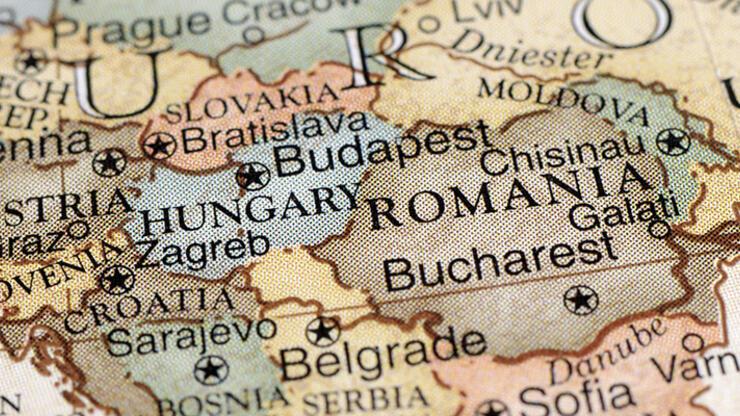
According to the news of Euronews; Known for his pro-Moscow rhetoric, Dodik stated that he wanted to remove Republika Srpska from key state institutions in Bosnia and Herzegovina, such as the judiciary, tax system and joint armed forces, with his debut last December, triggering the most serious political crisis in the country after the war that ended in 1995.
Visiting Serbia’s capital Belgrade, Dodik reiterated his criticism of the current form of government in Bosnia and Herzegovina, referring to the Dayton Peace Agreement at the press conference he held there.
The Serbian leader, who has been at the forefront of the actors directing the politics of the Bosnian Serbs since 2006, claimed that this is an uninhabitable state created by foreigners.
Under the Dayton Peace Agreement, which ended the 1992-1995 war in the country, Bosnia was divided into two autonomous regions, the Republika Srpska (RS) and the Federation shared by Croats and Bosniaks.
The Peace Implementation Council (PIC) operating in Sarajevo carries out the task of maintaining the political stability provided by the Dayton Agreement in the country.
“We established the Republic of Serbia as an independent state and we have never considered Bosnia as a joint state,” Dodik said. used the phrase.
“Bosnia needs to be redefined and returned to its (original) constitution. If this is not possible, which is not possible, it should be dissolved,” Dodik said. said.
Underlining his close relations with Russian President Vladimir Putin and Hungarian Prime Minister Viktor Orban, Dodik declared the victory of the SNSD (Union of Independent Social Democrats), which he leads at all levels of government, including the presidential race of Republika Srpska.
Stating that he wanted to address Serbian media, Dodik referred to the election held on Sunday (October 2nd) and claimed that some were “trying to question his victory”.
Controversial votes in Bosnia and Herzegovina’s Serbian entity to be recounted
Meanwhile, Bosnia and Herzegovina’s Central Election Commission (CIK) announced that it has decided to recount the votes for the controversial RS Presidency in Republika Srpska (RS), one of the country’s two entities.
In the statement made by the CIK, it was stated that the ballot boxes were reopened and the votes were counted, pointing out that there was misleading evidence in the votes regarding the RS Presidency in the election held on Sunday, October 2nd.
CIK announced that the results will be published on their official websites.
RS Presidency controversy
There was a “we won” race between the two candidates vying for the RS Presidency, the Union of Independent Social Democrats (SNSD) President Milorad Dodik and the Democratic Progressive Party (PDP) candidate Jelena Trivic.
On the night of the election, both party wings made statements that their candidates had won the election, while Dodik and Trivic made victory speeches.
According to the unofficial results released by the CIK, Dodik has been announced as the new RS President, having finished ahead of the election.
After all these events, the opposition parties in RS stated that Dodik won the election “by fraud” and applied to the CIK for a recount of the votes.
Opposition parties also held protests on Thursday and Sunday evenings with the participation of thousands of people.
Dayton Treaty
The Dayton Peace Treaty, signed in December 1995, divided the country into two political units.
The first of these was the Bosnian-Croat Federation, and the second was called the Bosnian Serb Republic.
The Dayton Agreement also contains detailed provisions on the constitution and the administrative and legal structure of the country.
It accepts the Bosnian-Croat Federation and the Bosnian Republika Srpska as equal status in the decision-making process.
In order for the country to take a decision on any issue, the approval of both units is required.
Due to the complex structure, the State of Bosnia and Herzegovina has not been able to develop a candidacy relationship with the EU, nor has it decided to join NATO to ensure its territorial integrity.
Bosnian Serbs limit Bosnia and Herzegovina’s mobility based on this right granted by the Dayton Agreement.
.
